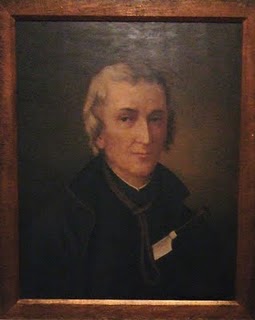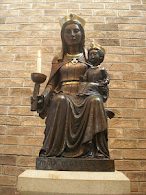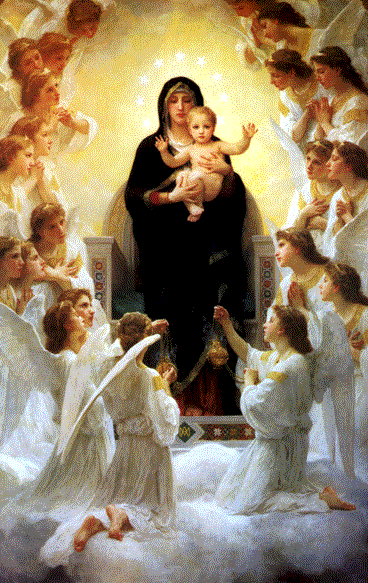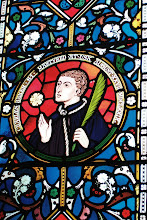The Act Against Jesuits and Seminarists (1585) was long and comprehensive, covering every Catholic in the realm. It was truly designed to stamp out Catholicism. I have quoted some passages from the Act in the hope of showing why the Martyrs were put to death. However, not being of a legal bent, I admit to finding it just a trifle difficult to “pick the bones out of it”, so to speak. Nonetheless, I hope these posts will shed some light on the legal difficulties and horrific dangers Catholics faced in the 16th and 17th centuries. This posts deals specifically with priests.

Act Against Jesuits and Seminarists (1585)
27 Elizabeth, Cap. 2
"For reformation whereof be it ordained, established, and enacted by the queen's most excellent majesty, and the Lords spiritual and temporal, and the Commons, in this present Parliament assembled, and by the authority of the same Parliament, that all and every Jesuits, seminary priests, and other priests whatsoever made or ordained out of the realm of England or other her highness's dominions, or within any of her majesty's realms or dominions, by any authority, power, or jurisdiction derived, challenged, or pretended from the see of Rome, since the feast of the Nativity of St. John Baptist in the first year of her highness's reign, shall within forty days next after the end of this present session of Parliament depart out of this realm of England, and out of all other her highness's realms and dominions, if the wind, weather, and passage shall serve for the same, or else so soon after the end of the said forty days as the wind, weather, and passage shall so serve.
And be it further enacted by the authority aforesaid, that it shall not be lawful to or for any Jesuit, seminary priest, or other such priest, deacon, or religious or ecclesiastical person whatsoever, being born within this realm, or any other her highness's dominions, and heretofore since the said feast of the Nativity of St. John Baptist, in the first year of her majesty's reign, made, ordained, or professed, or here after to be made, ordained, or professed, by any authority or jurisdiction derived, challenged, or pretended from the see of Rome, by or of what name, title, or degree soever the same shall be called or known, to come into, be, or remain in any part of this realm, or any other her highness's dominions, after the end of the same forty days, other than in such special cases, and upon such special occasions only, and for such time only, as is expressed in this Act; and if he do, that then every such offence shall be taken and adjudged to be high treason; and every person so offending shall for his offence be adjudged a traitor, and shall suffer, lose, and forfeit, as in case of high treason."
And be it further enacted by the authority aforesaid, that it shall not be lawful to or for any Jesuit, seminary priest, or other such priest, deacon, or religious or ecclesiastical person whatsoever, being born within this realm, or any other her highness's dominions, and heretofore since the said feast of the Nativity of St. John Baptist, in the first year of her majesty's reign, made, ordained, or professed, or here after to be made, ordained, or professed, by any authority or jurisdiction derived, challenged, or pretended from the see of Rome, by or of what name, title, or degree soever the same shall be called or known, to come into, be, or remain in any part of this realm, or any other her highness's dominions, after the end of the same forty days, other than in such special cases, and upon such special occasions only, and for such time only, as is expressed in this Act; and if he do, that then every such offence shall be taken and adjudged to be high treason; and every person so offending shall for his offence be adjudged a traitor, and shall suffer, lose, and forfeit, as in case of high treason."
***High Treason, treason perpetrated by somebody against his or her own sovereign or country, was formerly distinguished from petty treason, a treason committed against a subject of the sovereign, the scope of which was limited by statute to the murder of a legal superior. Petty treason comprised the murder of a master by his servant, of a husband by his wife, or of a bishop. Petty treason ceased to be a distinct offence from murder in 1828. Considered to be the most serious of offences, high treason was often met with extraordinary punishment, because it threatened the security of the state. A particularly horrific manner of execution known as hanging, drawing and quartering was employed.








.JPG)

.JPG)






No comments:
Post a Comment